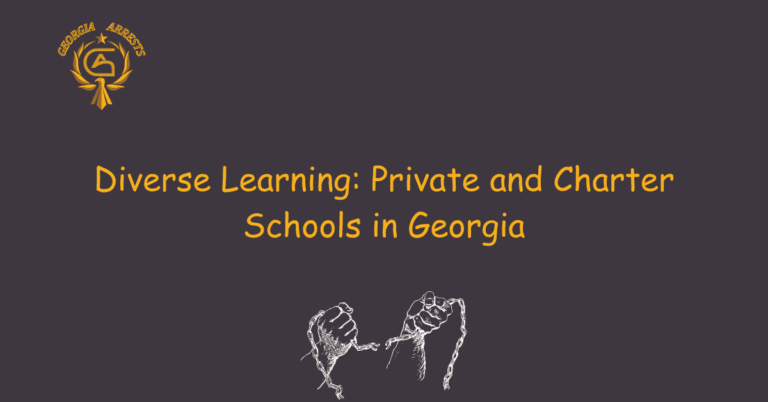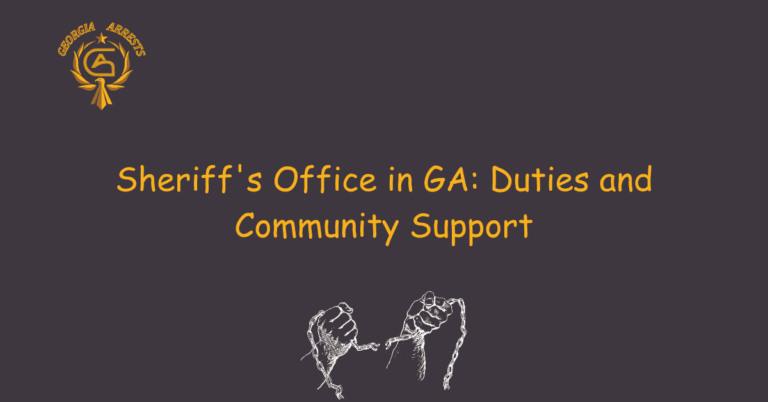Guarding Against Identity Theft: Tips for Georgians
Identity theft is a growing concern in today’s digital age. With the increasing use of technology and online transactions, it has become easier for criminals to steal personal information and exploit it for their own gain. In Georgia, like in many other states, individuals need to be proactive in safeguarding their identities and protecting themselves from falling victim to this crime.
Guarding against identity theft requires a combination of awareness, caution, and proactive measures. One of the first steps individuals can take is to regularly monitor their financial accounts and credit reports. By keeping a close eye on transactions and any suspicious activity, you can identify and report any unauthorized charges or accounts in a timely manner. Additionally, it is crucial to protect personal information such as social security numbers and passwords, and to only share it with trusted sources and on secure platforms.
Importance of Identity Theft Prevention
Identity theft is a serious concern in today’s digital age, and it is crucial for individuals to understand the importance of preventing this crime. By taking proactive measures, individuals can protect themselves from becoming victims of identity theft and avoid the potential financial and emotional consequences that come with it.
Regular Monitoring of Financial Accounts and Credit Reports
One of the most effective ways to guard against identity theft is by regularly monitoring financial accounts and credit reports. By keeping a close eye on transactions and any suspicious activity, individuals can quickly identify and report any unauthorized charges or accounts. This allows for timely action to be taken to prevent further damage and ensure that any fraudulent activity is addressed promptly.
Protecting Personal Information
Protecting personal information is another essential step in preventing identity theft. It is crucial to safeguard sensitive data such as social security numbers and passwords. This can be done by using strong and unique passwords, regularly updating them, and avoiding sharing personal information on insecure platforms or with untrustworthy sources. By taking these precautions, individuals can significantly reduce the risk of their personal information falling into the wrong hands.
Being Mindful of Online Transactions
With the increasing use of technology, online transactions have become commonplace. However, it is important to exercise caution when conducting these transactions to avoid falling victim to identity theft. Individuals should ensure that they are using secure platforms and websites for any online transactions. It is also advisable to verify the authenticity of websites and avoid clicking on suspicious links or providing personal information through unsecured channels.
Education and Awareness
Education and awareness play a vital role in preventing identity theft. By staying informed about the latest scams and techniques used by criminals, individuals can better protect themselves. This can be achieved through reading articles, attending seminars, or participating in identity theft prevention programs. By being aware of the risks and understanding how to mitigate them, individuals can make informed decisions and take appropriate actions to safeguard their identities.
Reporting Suspicious Activity
If individuals suspect that they may have fallen victim to identity theft or notice any suspicious activity, it is crucial to report it immediately. Reporting such incidents to the appropriate authorities, such as the local police or the Federal Trade Commission, can help initiate investigations and prevent further harm. Timely reporting also increases the chances of recovering any stolen information or assets and holding the perpetrators accountable for their actions.
FAQs
How can I protect myself from identity theft?
Guarding Against Identity Theft: Tips for Georgians provides valuable advice on protecting your personal information. It includes tips such as regularly monitoring your credit reports, using strong and unique passwords for online accounts, and being cautious when sharing personal information online.
What are some common signs of identity theft?
Recognizing the signs of identity theft is crucial in order to take immediate action. This article explains common signs such as unauthorized transactions on your accounts, receiving bills or statements for accounts you never opened, and being denied credit for no apparent reason.
How can I stay safe when using public Wi-Fi?
Public Wi-Fi networks can be a hotbed for identity theft. This section provides tips on how to protect yourself when using public Wi-Fi, including avoiding conducting sensitive transactions, using a virtual private network (VPN), and ensuring your devices have updated security software.
What should I do if I suspect I am a victim of identity theft?
If you suspect you are a victim of identity theft, it is important to act quickly. This section outlines steps such as placing a fraud alert on your credit reports, contacting the authorities, and notifying your financial institutions to minimize the damage caused by identity theft.
How can I protect my children from identity theft?
Identity theft can target individuals of all ages, including children. This article provides tips on protecting your children’s personal information, such as monitoring their online activities, teaching them about safe online practices, and being cautious when sharing their personal information.
What are some additional resources for learning about identity theft?
For further information on identity theft, this section provides a list of additional resources such as government websites, consumer protection agencies, and non-profit organizations that specialize in identity theft prevention and recovery.
Conclusion:
Identity theft is a growing concern, but individuals can protect themselves by taking proactive measures. Regularly monitoring financial accounts and credit reports, protecting personal information, being mindful of online transactions, staying educated and aware, and reporting any suspicious activity are all crucial steps in safeguarding one’s identity. By implementing these preventive measures, individuals can minimize the risk of falling victim to identity theft and enjoy greater peace of mind in today’s digital age.







